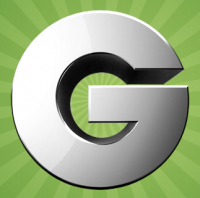E-commerce sales were up by 15% in 2012, a year with overall U.S. GDP growth of 2.2%. Year-over-year growth in online commerce has been in the double digits in each quarter since mid-2010, according to comScore. And that trend looks to be accelerating out of the recession.

How can investors capitalize on this trend? There are quite a few avenues to consider.
In this post, I’ll take a look at some companies who try to connect buyers and stores to facilitate e-commerce. (For a look at the companies that deliver all the products purchased online, see this post.)
There are plenty of companies trying to connect shoppers with sellers online. Websites like FatWallet.com, which direct consumers to deals from companies that advertise with the facilitator, abound. Groupon Inc (NASDAQ:GRPN) is the publicly traded play in this area. It connects Internet users with brick-and-mortar retailers and online sellers through its “deal-of-the-day” offers. Launched in late 2008, Groupon Inc (NASDAQ:GRPN)’s sales have grown exponentially, up from just $14 million in 2009 to $2.3 billion in 2012.
But despite that growth, Groupon Inc (NASDAQ:GRPN) has yet to turn an annual profit. And even more worrisome, it operates in a space with few barriers to entry, and already many competitors, including the popular Amazon.com, Inc. (NASDAQ:AMZN)-backed LivingSocial, which also lost money despite doubling its revenue last year.
Simply put, this market already looks overcrowded.
Don’t overlook the obvious
There’s been no single company that’s done more to connect shoppers with products online than Google Inc (NASDAQ:GOOG). There’s also no company better than Google Inc (NASDAQ:GOOG) at turning those connections into reliable profits. As a result, investors have been rewarded with more than 600% gains over the past decade, a period in which the S&P 500 has generated just a 40% return.
And Google Inc (NASDAQ:GOOG)’s run may be far from over. Not only has Google dominated traditional web search, it has also been out in front of the curve in the trend toward mobile web browsing. Its Android platform is the most popular in the smartphone market, and it ensures that consumers who have moved from desktops and laptops to handsets are still using Google to find what they are looking for.
One big concern is that mobile ads have been less lucrative for the search giant. Google Inc (NASDAQ:GOOG) grew its revenues by an impressive 36% year-over-year from 2011 Q4. But it was spending money at an even faster rate. Its cost of revenue grew by 68% year-over-year. As a result, its GAAP operating margin plummeted from 33% to 24%.
So while Google still dominates the search market, it dominates a market that may be offering a shrinking opportunity for big profits. If those margins continue to contract, investors could flee Google Inc (NASDAQ:GOOG) in a hurry. We need only to look at Apple Inc. (NASDAQ:AAPL) to see how shrinking margins can send Wall Street running from a stock that it had just been smitten over.



